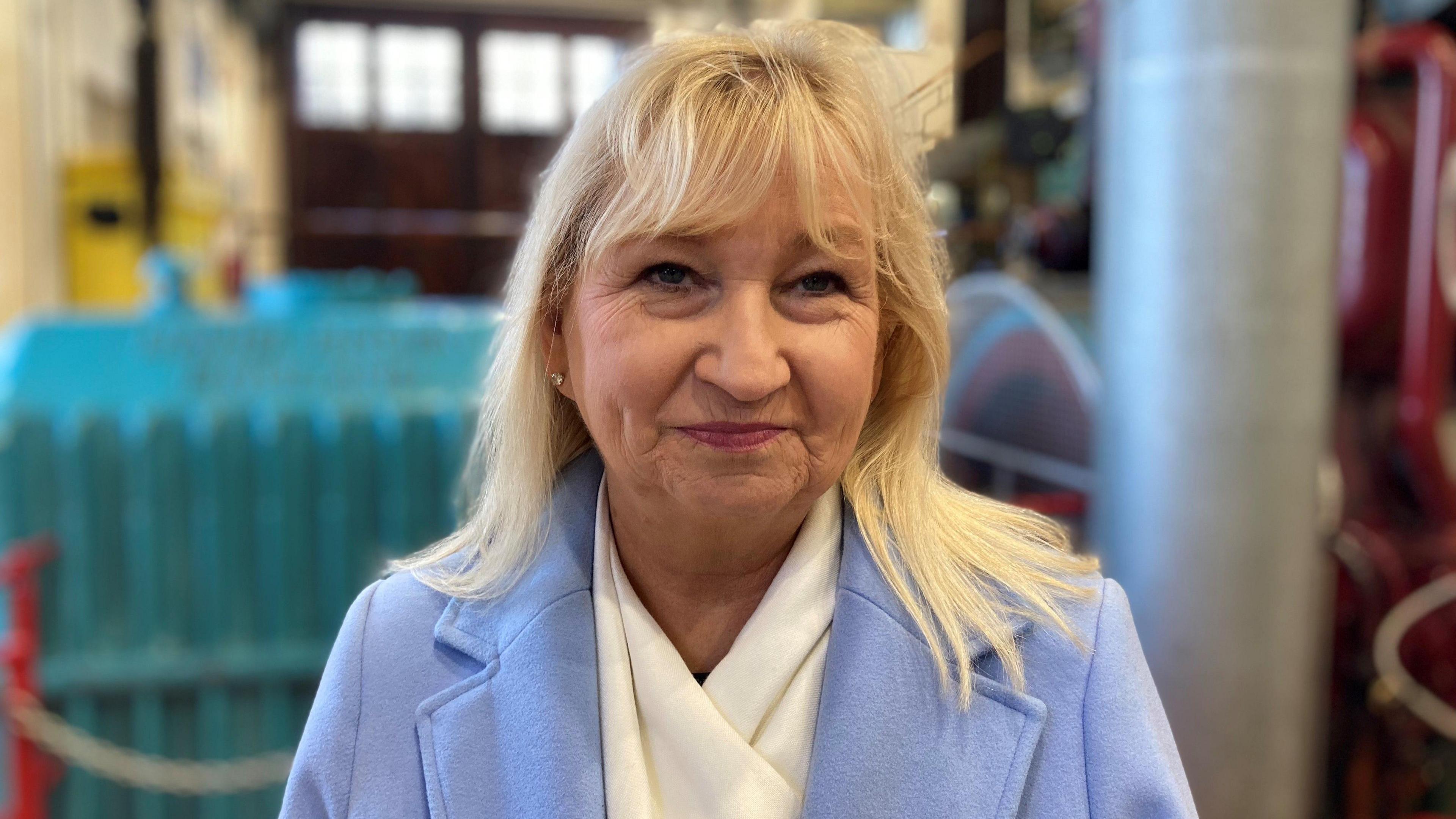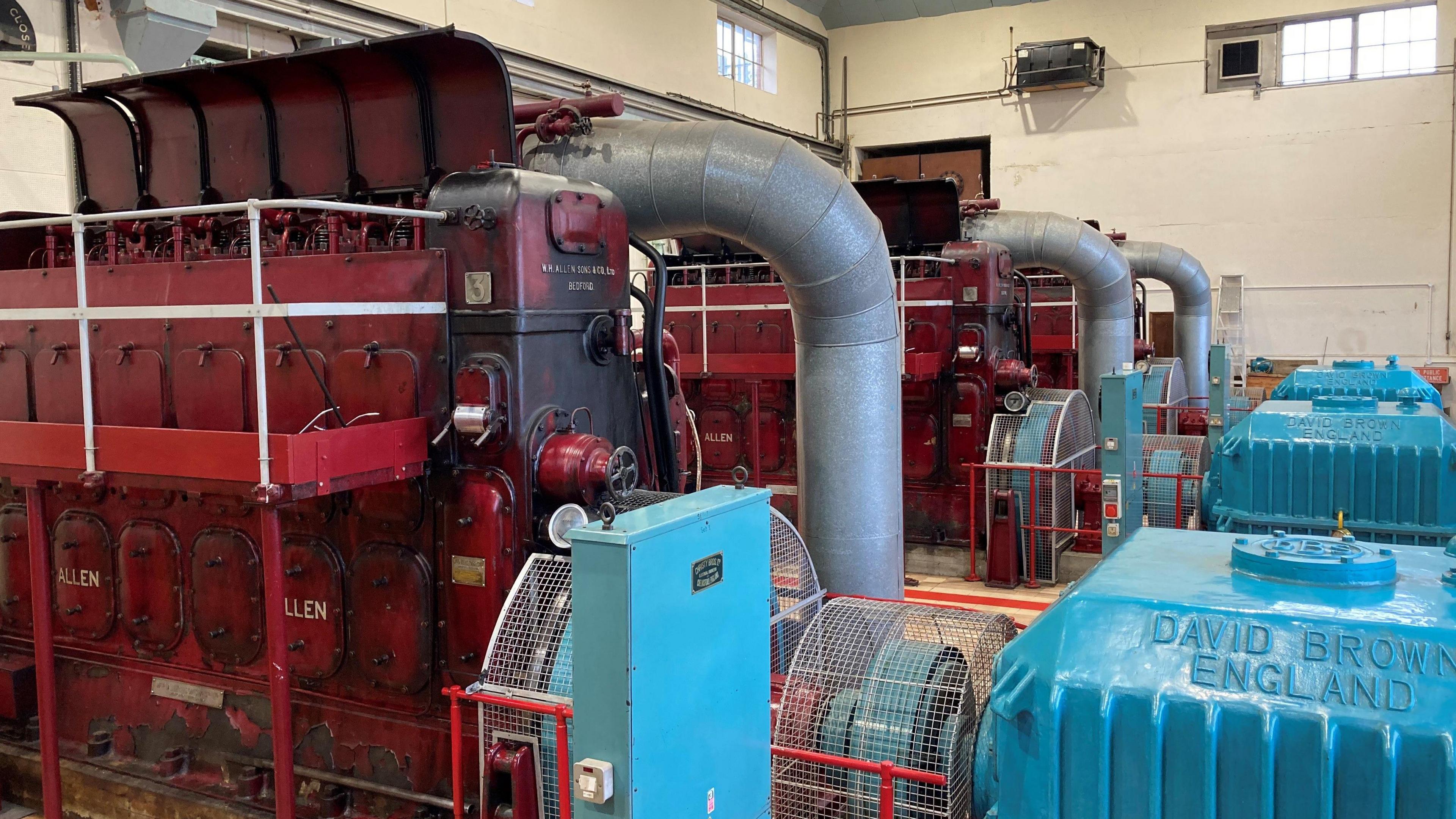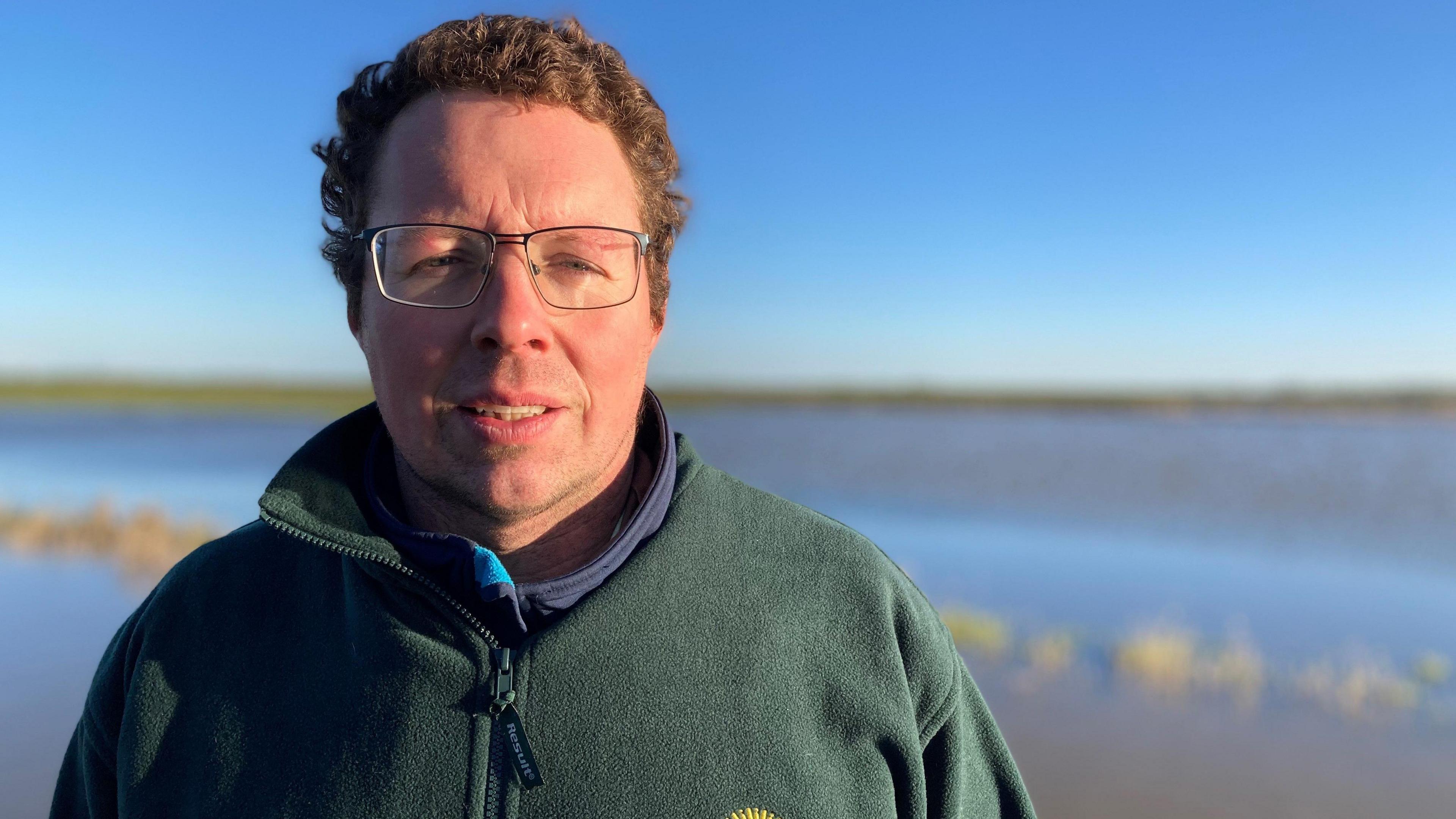Councils warn flood drainage costs could mean cuts

Boston council leader Anne Dorrian described the increase in charges as "unfair"
- Published
A group of councils in Lincolnshire claim front-line services will suffer unless they get help to pay for draining land after flooding.
Authorities in Boston, South Holland and East Lindsey said they are handing over almost £10m a year, up to 65% of their council tax income, to pay for land drainage.
Boston Borough Council leader Anne Dorrian said it was "unfair" and they were being forced to make cuts to front-line services as the cost of drainage "soars".
The government said it had given £3m to help the councils most severely impacted by the cost.
For every £1 Boston Borough Council receives in council tax, 58p is handed over to local internal drainage boards (IDBs).
The figure is 65p in East Lindsey and 54p in South Holland.
The three councils claim, as government funding for services has decreased, they have had to turn to council tax bills to pay for drainage.
Ms Dorrian said: "We need that money to run local services so it's about time the government helped us out.
"Right now we're looking at cutting back services that we deliver face-to-face with people."

The Hobhole Pumping Station near Boston, Lincolnshire
IDBs manage water levels using pumping stations which are powered by diesel or electricity.
Peter Bateson, chief executive of Witham Fourth District Internal Drainage Board in Lincolnshire, said they would be charging councils an "unprecedented" 20% more when energy costs increase in April.
"The unit rate of electricity will go up by 170% and the standing charge by 290%," he said.
"If we turn our pumps off, at least 1,300 properties would be flooded along with most of the farmland.

Farmer William Tyrrell fears he will lose crops next year after several acres of his farmland was flooded
Farmer William Tyrrell from Cowbit, near Spalding, said IDBs "play a vital role".
As a landowner, he pays an annual charge towards IDBs and believes residents should also contribute.
"We're in a low-lying area and we're all in it together," he said.
"I have sympathy with the councils and I hope solutions can be found to make it fair for all."
A government spokesperson described IDBs as "an essential part in helping us become more resilient to climate change".
"We recently announced an additional £3m in grant funding for 2023/24 to support 15 local authorities severely impacted by the increase in levies from internal drainage boards," the spokesperson added.
Follow BBC East Yorkshire and Lincolnshire on Facebook, external, Twitter, external, and Instagram, external. Send your story ideas to eastyorkslincs.news@bbc.co.uk, external.